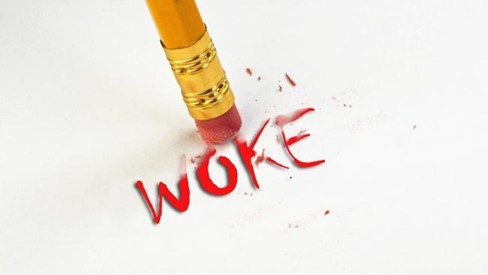

David Murray, one of Australia’s most respected CEOs and former CBA boss for 13 years, has looked at the recent exits of Woolworths Brad Banducci and Virgin Australia’s Jane Hrdlicka and has said that he believes too many CEOs are being pressured by “ESG woke agendas”.
As a consequence, public company executives confront the “hangman’s choice”! I know David well and only he would know what that phrase means! Thankfully for me, an early morning writer/explainer, Google comes to the rescue, and I suspect the “hangman’s choice” is the same as the “hangman’s riddle”, which says: “He who serves me best, shall earn the rope on the gallows tree.”
For CEOs, you’re damned by others if you do the right thing by those who are woke and ESG demanding, and vice versa. On top of that, the company and its CEO will cop the ire of the stock market and shareholders if they please the woke community and the share price falls.
Woolworth’s Australia Day play is a case in point. To respect this nation’s first people, Banducci stopped selling Australia Day memorabilia but then copped a bagging from Australians who don’t want to see the national day of celebration of the country’s establishment denigrated.
He served the ESG master and was then hanged by those who are less woke. David Murray argues that this puts CEOs in an invidious position. He says boards “were putting their chief executives in situations where they had to take a stand on what should be political or social issues, as well as running their company and argues that this is a very “unhealthy” situation, where the CEO could get drawn into social issues and find themselves being criticised by the media.
Murray suggests that there is a “confusion of purpose” and maintains that all CEOs now have to ask this question: Am I here for social or commercial purpose?
And that led him to ask the question that new age CEOs have to ask: ““Do employees come to work for these other purposes or is profit the main purpose of the company?”
He thinks big political and social issues should be determined by government, and CEOs shouldn’t have to “make decisions on policies after weighing up the winners and losers in the society.”
As protectors of shareholders’ assets (and the company’s brand is one of the most valuable), boards have increasingly become more woke-conscious and have added an ESG filter in assessing the actions of CEOs. What used to be external regulation when companies were working against the social good, has now become self-regulation often initiated by the board.
Combined with escalating government regulation, driven by social and voter demands, a CEO’s task has become more complex, and this is how Murray sums it up: “It is leading to a requirement for more committees and remuneration models, which are constraining the efficiency of the board and the freedom of the chief executive. It is leading to the confusion of the proper roles of the board and the chief executive”.
All this has been put on the table for debate as “consulting firm McGrathNicol is warning entrepreneurs to think twice about taking their companies public, given the increasing public scrutiny of the CEOs of listed companies”, The Australian’s Glenda Korporaal reports. “McGrathNicol partner Andrew Fressi said the firm was reminding company owners wanting to list on the stock exchange that the move involved intense scrutiny from a range of stakeholders, including the media and customers.”
Fressi agrees with Murray when it comes to CEOs now under new pressure with media 24/7 coverage. “Twenty years ago, you didn’t have some of the scrutiny that they’re under now these days, which creates a lot of personal pressure,” he said. “There is much more scrutiny on people, especially in consumer-facing industries where you have brands and retail customers. They are constantly in the limelight…[and] they are constantly being challenged. There is more pressure from an investor and customer stakeholder perspective.”
And this public scrutiny has seen public company listings collapse from 191 in 2021 to 32 last year. Partly explaining this is the revelation from Alisa Wood, a New York-based partner in private equity giant KKR, who told The Australian that it used to take six years to take a company public but now it takes 12!
So, the question is this: will backlash comments by the likes of David Murray do anything to change boards and make life easier for CEOs? I doubt it, as industry super funds are now big owners of public companies and are getting positions on boards, and these groups are especially committed to ESG issues, given their left-wing union origin.
However, these groups are supposed to be acting in the interests of their super members and super actions by trustees have to pass the sole purpose test.
What’s this test? Put simply, the Australian Taxation Office (ATO) requires that all activities of super funds must be for the sole purpose of providing retirement benefits to their members (or to their dependants if any of their fund members die before retiring).
If a company’s profits and share price are being hurt by excessive woke-ness, then the Commissioner of Taxation might have to rescue these company leaders for the sake of super members.
By the way, that’s never going to happen!